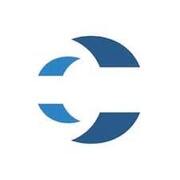
Best Data Catalog Software 2026
Data catalog software helps businesses find, validate, and organize their data assets. These products often include automated metadata discovery tools to help keep them comprehensive and relevant.
We’ve collected videos, features, and capabilities below. Take me there.
All Products
Learn More about Data Catalog Software
What is Data Catalog Software?
Data catalog software helps businesses find, validate, and organize their data assets. A well-constructed, actively maintained data catalog shows users what data assets are available, where they are located, what their relationship is to that data, and other metadata. These products often include machine-learning-based asset and metadata discovery tools to help keep the data catalog comprehensive and relevant.
In addition to automated discovery tools, products in this category often rely on crowd-sourcing for metadata creation and verification. Since this requires high user engagement, these products commonly mimic collaboration tools to engage non-technical users. By enabling all users to comment on, validate, tag, categorize, and discuss the data sources they work with, data catalog software aims to give businesses a comprehensive, up-to-date, easily navigable, and consumable view of their data landscape.
Data catalog software is an evolution of metadata management software. While data catalog products perform metadata management at their core, their focus on crowdsourced data and universal accessibility sets them apart.
Products in this category also commonly include data governance features or support other data governance software. An actively maintained data catalog is also a pillar of a successful data fabric architecture.
Data Catalog Software Features
Most data catalog products have the following features:
- Metadata discovery
- Business glossary
- Data analysis
- Natural language search
- Integrated commenting and collaboration
- Data governance tools
- Pre-built connections to data sources
- Tools for creating custom connections
- Access control
Data Catalog Software Comparison
When evaluating data catalog software, keep the following comparison points in mind:
Ease of Use: Although the user experience is important for any tool, it’s absolutely critical for a successful data catalog implementation. The value you’ll get from a data catalog is strongly related to the degree of employee adoption. A data catalog solution with an inviting, easy-to-navigate interface will encourage more contribution and interaction with the platform. Try out multiple product demos with employees of varying roles and skill levels to see which one is a better fit for your organization.
Training and Culture: A data catalog with an intuitive UI still isn’t worth much if your employees don’t know about the tool and understand its importance. Before and during implementation, you’ll need to train users on the tool and teach them how it can help them and their co-workers. Some vendors may offer training and onboarding programs to help get you started. If you prefer to do training without vendor support, be prepared to devote the necessary time and resources.
Connections: Some data catalogs are designed to work best with specific data systems, like Oracle or Azure. Other vendors are independent, and create their product with varied ecosystems in mind. If you already have a suite of data tools from a specific vendor, check to see if they offer a data catalog solution. No matter what you choose, make sure you pick a product that connects to as many of your existing data sources as possible. Some products let you create custom data connectors, but custom work will take additional time and maintenance.
Start a Data Catalog Software comparison here
Pricing Information
Pricing for data catalog software is not commonly provided. Where pricing is available, it varies widely based on feature set. Some data catalog products are add-ons to existing subscriptions and may start as low as $1 monthly per user. Other products are comprehensive data platforms in their own right and are much more expensive, starting around $4,000 monthly for 10 users, with each additional user starting at $400 per month.
Your best bet is to contact a vendor. They often offer free demos of their products, which can help you decide if their product is a good fit for your needs. They’ll also be able to provide you with a quote customized to your use case.























